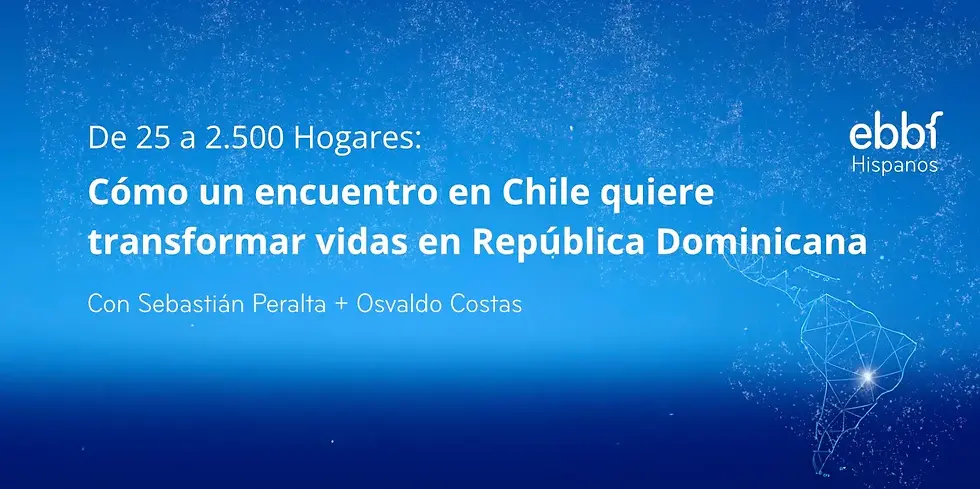co-creating: just another trendy word? Refresh Interactions has a few ideas
- sjoerdluteyn
- May 27, 2013
- 3 min read
Following the recent sold-out ebbf international learning event dedicated to “co-creating the NEW collaborative enterprise” you can read below an excerpt of a longer article (see here his full original post) from one of the co-creators of the event, Sjoerd Luteyn.
You can also download here the presentations and a summary of outcomes from that event.
“A few months ago, I was confronted with the title of the upcoming ebbf event called ‘co-creating the new enterprise’. And Refresh was asked to help with promoting the event. An excellent opportunity to explore whether co-creation is a fashion word, or has true meaning.
To start with the ending in mind: we have had a great event!!! It was sold out. It all began with one simple question, and we love questioning and challenging assumptions, don’t we? The question that we asked was: how is this event co-creating as most the events are just a consuming experience (‘sit down and listen). The ebbf assumed that their event is already different as it’s main driver is not keynotes per se, but rather the meaningful conversation around it, which defines the visitors value.
To answer this question, we started out with forming a definition of ‘co-creation’ What is the meaning of it? Looking it up in the dictionary requires to look into two words: ‘co’ and ‘create’.
co- |kəʊ|
prefix
(forming nouns) joint; mutual; common: co-driver | co-education. (forming adjectives) jointly; mutually: coequal. (forming verbs) together with another or others: co-produce. Mathematics of the complement of an angle: cosine. the complement of: co-latitude. ORIGIN from Latin, originally a form of com-.
create |kriːˈeɪt|
verb
[ with obj. ] bring (something) into existence: he created a thirty-acre lake | over 170 jobs were created.[ no obj. ] Brit. informal make a fuss; complain: little kids create because they hate being ignored. cause (something) to happen as a result of one’s actions: divorce created only problems for children. (of an actor) originate (a role) by playing a character for the first time. [ with obj. and complement ] invest (someone) with a title of nobility: he was created a baronet. DERIVATIVES
creatable adjective
ORIGIN late Middle English (in the sense ‘form out of nothing’, used of a divine or supernatural being): from Latin creat- ‘produced’, from the verb creare.
To summarize this it seems to mean something like: Jointly bring (something) into existence. Reflecting on this event the following questions came up: when we sit down and listen to great keynote speakers, are we then doing something Jointly? And are we bringing something into existence? Or stated differently (more positively): how can we elevate this event so that the outcome could be a jointly attempt to bring the new enterprise into existence?
Learning by doing We started out with defining principles that we could agree upon, before we moved into actually developing a program. The first principle that we agreed on was: co-creating is a learning process. So, we need to learn how to co-create. London 2013 is the first attempt. And from there on, we’ll keep evolving the process of co-creating.
The second principle that we agreed upon is that the process of jointly creating something is more important than the output. It is therefor of crucial importance that all of the participants are able to contribute and everybody is heard.
The third principle was: we need to capture the content that is generated. Otherwise we created thoughts, which could be interesting, but would anybody who was not present not able to grasp the ideas and continue with building upon the ideas generated.
Multi-disciplinary teams With these principles in mind, our team started to bring co-creation into existence. We needed to co-create the flow of the program together. The team who developed the co-creation was: an architect (Stephanie Akkaoui-Hughes), an IT consultant (Jason Maude), a design consultant (Paul Hughes), a strategic designer (myself) and not to forget, the director general of the ebbf (Daniel Truran). A multi-disciplinary team, partially focussed on communication and partially focussed on the event. In the past years we have developed different collaborative processes, and we discovered that this is one of the key-elements as a key-driver for relevant output: multi-disciplinary teams….”







Comments